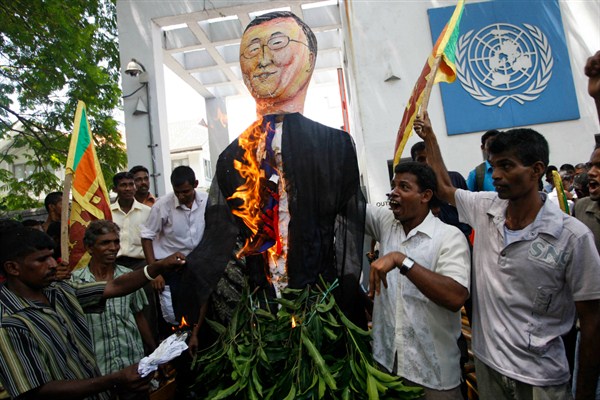Ten years ago this month, senior United Nations officials were hard at work equivocating over a crisis. A cynic might say that the U.N. exists in a constant state of equivocation. But in March 2009, its leaders were mired in an especially grim political mess—and handling it badly.
The cause of their troubles lay in northern Sri Lanka. After decades of civil war, the Sri Lankan military was carrying out a final offensive against the Liberation Tigers of Tamil Eelam, a rebel group with a long history of atrocities. As the decisive battle wore on, U.N. officials and journalists in the war zone reported that the army was also behaving brutally, killing thousands of civilians.
Their superiors responded nervously and indecisively. The top U.N. official in Colombo, known as the resident coordinator, assiduously avoided alienating the government. His advisers refused to give frank briefings on fatalities to the media or diplomats. At U.N. headquarters in New York, Secretary-General Ban Ki-moon and his advisers were equally tremulous. After U.N. human rights officials in Geneva drafted a clear statement on the crisis in mid-March 2009, Ban’s chef de cabinet replied asking for “some dilution of tone and rigor” in its comments on the death rate in Sri Lanka.

